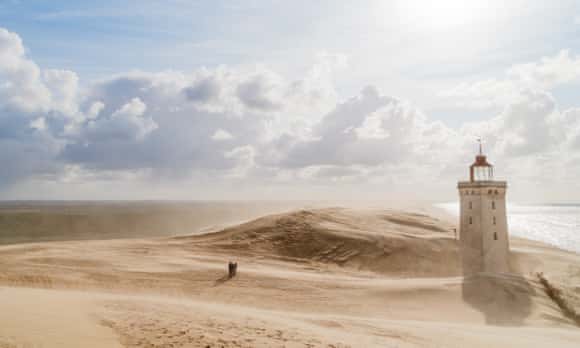 | Lab notes: skin makes me cry, plus a zombie supernova in the sky |  |  A sheet of skin grown at the Centre for Regenerative Medicine at the University of Modena in Italy. It's simultaneously a bit gross and utterly brilliant. Science, eh? Photograph: Frank Jacobsen/AP
| Tash Reith-Banks
| This week's biggest stories In a world full of sad news and "harmless" radioactive clouds drifting over Europe, one piece this week stood as a beacon of hope, warmed the cockles of our hearts and mixed any other metaphor you'd care to chuck in there. The story of scientists saving the life of a seven-year-old Syrian boy by growing a whole new skin for him was incredibly moving – and just plain incredible science-wise. That plus a "transformational" new prenatal DNA test that detects Down's, Edwards and Patau syndromes with 95% accuracy means that it's been a pretty darn good week for medical research. And that's before we even start to think about the sheep whose ability to recognise celebrities could help research into Huntington's disease. The last two stories are linked by the year 1954 (spooky, no?). That was the year a Roman Temple of Mithras was discovered beneath the London mud. It's also the year a star, iPTF14hls, first exploded in a supernova. The temple has just reopened, in a glorious new multi-sensory incarnation on its original site and the star ... well, the star has become something of a sensation, as it appears to have exploded in "fatal" supernovae multiple times since that 1954 sighting – the first star astronomers have witnessed doing so. More news from Guardian Science | Sign up to Lab notes ___ Talking point: when is a planet not a planet? Astronomers have discovered a new giant world that, size-wise, is right on the boundary between being a star and a planet – and that could help answer some big questions about how celestial objects form. Straight from the lab – top picks from our experts on the blog network |  |  Climate change is part of life on planet Earth, but context is needed to understand past change and the current situation. Photograph: Redphotographer/Getty Images/iStockphoto
| The climate has changed before. But this is different – look at the archeological record | The Past and the Curious Though these were temperature changes of less than 2C, we know these periods for their social upheaval. The climate change in Europe around the 6th-7th century AD led to the large-scale migrations that contributed to the decline of the Western Roman Empire. Change in Mesoamerica caused a decline in rainfall and droughts that led to collapse of Mayan cities during the Terminal Classic Period. The effects of climate change begin quite subtly, but lead to tipping points. A small change in temperature or precipitation can cause droughts or floods, which in turn prompt civil unrest and migrations. In the past, these periods of climatic interruption affected rainfall, caused extreme weather events and changes in crop yields, diseases, and eventually cities. Teeth discovered in Dorset reveal secrets of the origins of modern mammals | Lost Worlds Revisited Palaeontologists from the University of Portsmouth have discovered two new fossil teeth from the Cretaceous rocks of Dorset. They are from the branch of the mammal tree that led to modern mammals – including humans. Their findings suggest the origin of modern mammals lies even earlier in geological history, as supported by previous fossil finds from China. The neuroscience of no regrets: why people still support Brexit and Trump | Brain flapping Why would we be so dedicated to decisions we've made, even when presented with tangible evidence that they weren't the best course of action? One argument is that our decisions are a big part of how we define our sense of "self", and if we doubt our decisions, this causes uncertainty and unease at a very deep level of our being. We made a decision based on our own evaluation of the information presented, which was obviously filtered through our existing attitudes, beliefs, opinions and conclusions. As a result, our brains reflexively downplay or dismiss any information that causes us to doubt our decisions, because that casts doubt on our very ability to function. Anything that causes our behaviour and our beliefs to come into conflict is not something our brains like. Visit the Science blog network _____ Alex Bellos's Monday puzzle |  |  From Russia with ... lovely puzzles. Photograph: Andrew McConnell / Alamy/Alamy
| This week Alex shares the secrets of Russian intelligence – mathematical smarts, that is. Did you solve all three? Visit Alex Bellos's Adventures in Numberland blog for more marvellous maths ___
Science Weekly podcast |  |  Runners competing in this year's New York marathon. Photograph: Lucas Jackson/Reuters
| What can science tell us about the limits of human performance in long-distance running? How can running a marathon affect our body and mind? And with growing participation in amateur events, can just about anyone run a marathon? Find out in the latest Science Weekly podcast. ___ Eye on science – this week's top video |  | Looks like the age of the AI-enabled driverless vehicle is well and truly upon us – time to have a proper think about the implications, minor accidents and all. | | Guardian News & Media Limited - a member of Guardian Media Group PLC. Registered Office: Kings Place, 90 York Way, London, N1 9GU. Registered in England No. 908396 |
| | | |
No comments:
Post a Comment